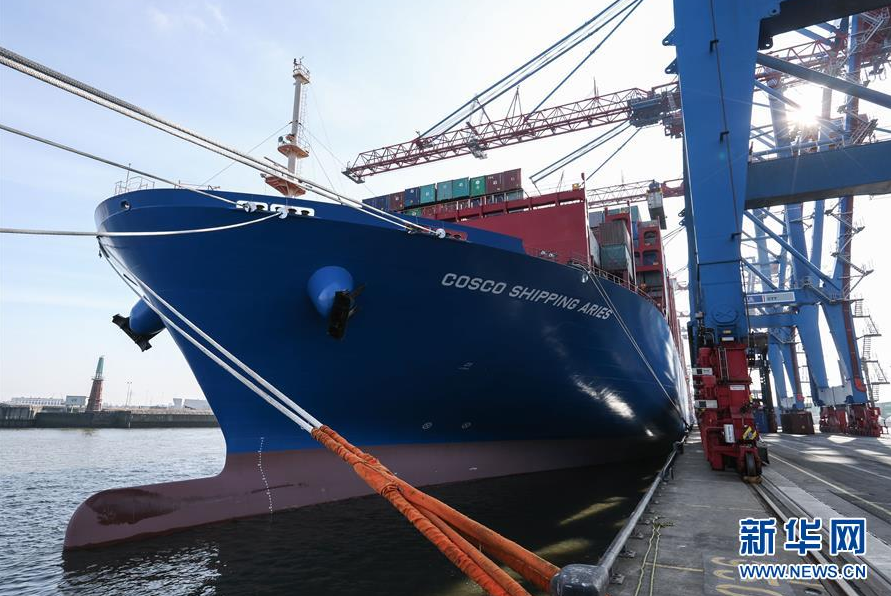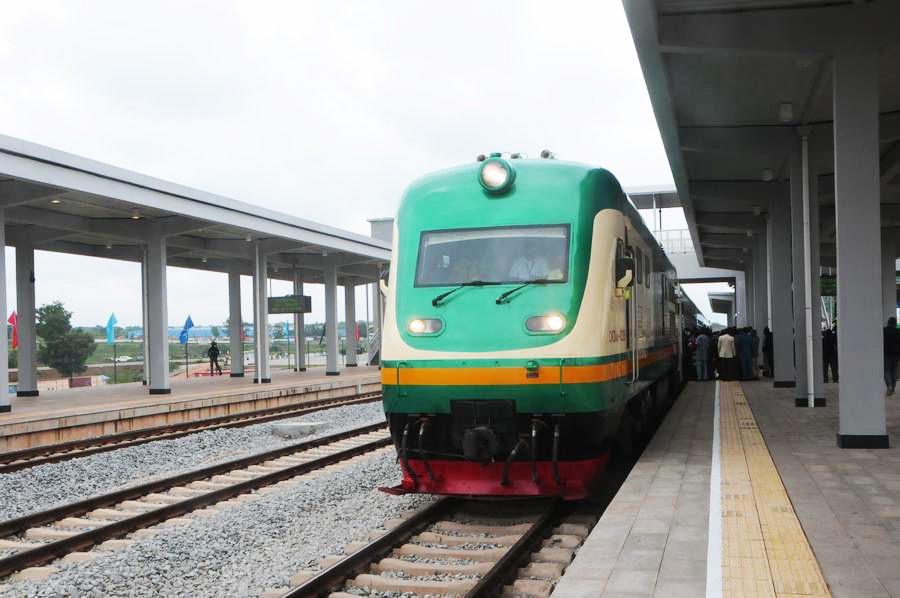Nicholas Rosellini: BRI provides opportunities in sustainable development
 0 Comment(s)
0 Comment(s) Print
Print E-mail China Focus, April 26, 2019
E-mail China Focus, April 26, 2019
In May 2017, President Xi Jinping welcomed twenty-eight heads of state to the inaugural Belt and Road Forum for International Cooperation to discuss how the initiative could create a more open and more efficient platform for international cooperation.
In the five years since the initiative was launched, over a hundred countries and international organizations, including Italy in March this year, have signed cooperation documents on the Belt and Road. Vast infrastructure projects such as Kenya's Mombasa-Nairobi Standard Gauge Railway have been twinned with the creation of 82 economic and trade cooperation zones, such as the China-Belarus Industrial Park and Egypt's Suez Canal Economic Zone, to bring palpable benefits to local communities.
This April, at the invitation of Chinese President Xi Jinping, nearly 40 heads of state or government will again attend the second Belt and Road Forum for International Cooperation, offering an opportunity to consider, deliberate, and determine the future of the initiative.
To evaluate the impact of the Belt and Road Initiative thus far, China Focus enlisted Gao Anming, Vice President, China International Publishing Group, to debate with a selection of world-renowned experts from politics, academia, and business on the merits of the Belt and Road Initiative and how the initiative can sustain itself for generations to come.

In this article, Mr. Gao interviews H.E. Nicholas Rosellini, UN Resident Coordinator in China, to discuss how the Belt and Road Initiative is aligned with the UN 2030 Sustainable Development Goals, how the Belt and Road is enhancing global development, and determine why the Belt and Road is essential for boosting the world's economy.

Interviewee: H.E. Nicholas Rosellini, UN Resident Coordinator in China
Interviewer: Gao Anming, Vice President, China International Publishing Group
Location: 5th China and Globalization Forum
Gao Anming: From your perspective, what are the motivations behind President Xi Jinping's 2013 proposal for this Initiative?
Nicholas Rosellini: I think if you look at globalization in general, the world has benefited a lot from opening up globally since the end of the Cold War, with much greater flow of trade but beyond that also in terms of information and knowledge. The world has really become a much more integrated global economy, and I think that has had very positive advantages for many countries, and particularly developing countries, including of course China. Looking ahead, we also see that investments and globalization haven't touched all countries equally. There have been some winners, many winners in fact, and some losers, and I think the Belt and Road Initiative is that understanding that we need to also look at ways and means to continue in terms of globalization and to enhance the integration of different countries.
As I said earlier, many countries have not necessarily benefited from globalization and they have not benefited from foreign direct investment in the past. Their infrastructure is poor, their energy requirements are not being met and so on. So, I think there are many investment opportunities that have been neglected in the past to help countries integrate better into the world economy.

But to do that, they do need investments in industrialization, in energy, in infrastructure and I think this will be a boost for the world's economy and a boost for China, which is the largest trading economy in the world. So, I think this is potentially very positive. As I said, one also has to make sure that risks are taken care of, that the investments are done in a sustainable way, and that the countries receiving the investments have the absorptive capacity to optimize their use.
Gao Anming: In your opinion, what are the sustainability issues in the construction of the Belt and Road? How can such problems be tackled?
Nicholas Rosellini: The Belt and Road Initiative does provide a number of important opportunities to enhance global development but at the same time, there are a number of risks that need to be acknowledged and to be mitigated. When one looks at the opportunity side, this is an important platform for globalization. It's potentially bringing many countries into the global trading system which have not been recipients of much investment in the past. So, it's actually providing capital to countries that have been neglected in the past. Thus I think this provides a very good opportunity in terms of investment.

At the same time, in the United Nations, we're looking at more than just economic development; we are also looking at social and human development and for that, we have the 2030 Agenda for Sustainable Development. I also think the Belt and Road Initiative provides opportunities in that area as well. The Sustainable Development Goals are not only about the quality of development but they are also in need of increased resourcing for development. The financial side of development is also very important, and we are looking for literally trillions of dollars of extra investment over the years up to 2030.
If the Belt and Road Initiative is aligned with the Sustainable Development Goals, if it's investing in the kind of sectors that are covered by the Sustainable Development Goals, if it can generate employment, if it can help countries increase their growth rate but also do it in a sustainable way in terms of environmental and social sustainability, then I think there is not only that opportunity for economic development but also for human development, which is very important.
Now at the same time, as with any investment, there are risks involved and how do we deal with those risks? I think some of the risks are for the Chinese investors; what kind of knowledge do they have of the countries they are investing in? Do they understand the local environment well? Do they have a good institutional knowledge of the country and the investment climate and so on and understand the risks involved? But also, for the destination country, there are risks; does the country have strong regulatory frameworks? Does it have a strong institutional capacity? Is the country ensuring that the investments are optimized? Do they have the absorptive capacity? Have they ensured the investments are closely in line with their national development priorities?

So, the answers to these questions will be different for each country. Some countries have planned very well, they have strong absorptive capacities, good institutions, and so on. Other countries may need more support in these areas, and I think this is where we can look to the United Nations to help mitigate some of these risks. We are working in all developing countries and we have the experience of providing support to the destination countries in terms of capacity development, and certainly, we feel it is important that these investments are optimized.
In this case we are talking about the Belt and Road Initiative but it applies to any investment in a country that we need to make sure that, whether it's public investment or private investment, domestic investment or foreign investment, these investments are optimized to maximize the return for ordinary people in the country. This is what we do as part of our work in the United Nations. So, I think the risks can be mitigated, but they need to be understood clearly, country by country. We have to make sure that the investments are handled in a sustainable manner in terms of environment, in terms of social issues, and of course, in terms of financial risks as well.
If you would like to contribute, please contact us at opinion@china.org.cn.






Go to Forum >>0 Comment(s)